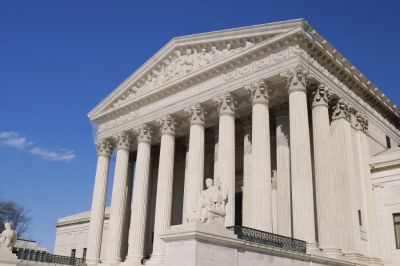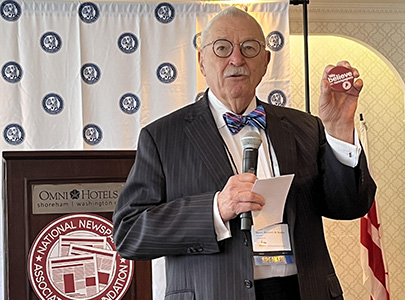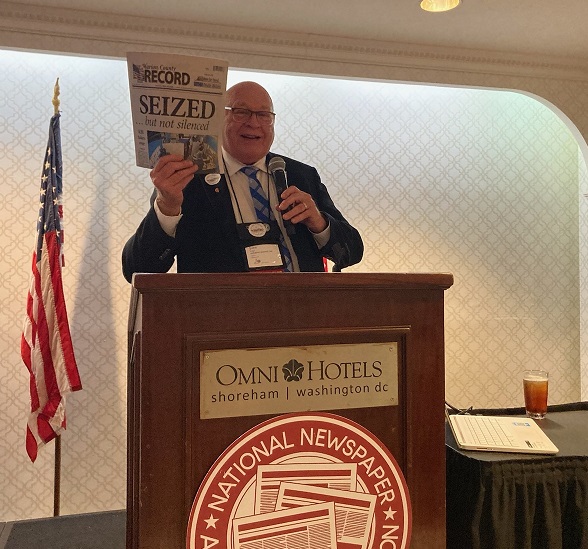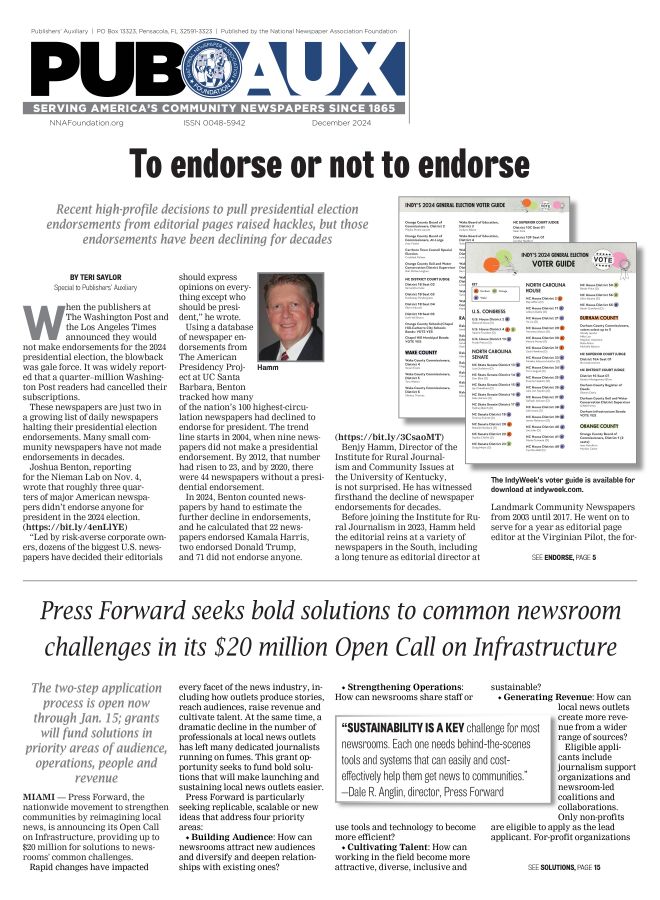PERSPECTIVE: HOW the Supreme Court could rule on key free speech questions this term
First Five by the Freedom Forum Institute
Mar 10, 2022

KEVIN GOLDBERG
First Amendment Specialist | Freedom Forum
Download Word doc here
Freedom Forum First Amendment specialist Kevin Goldberg breaks down why two key free speech cases before the Supreme Court this term matter to you — and predicts how the court will rule.
HOW MUCH CAN CITIES REGULATE SIGNS?
What happened?
Austin, Texas, has a code that places additional limits on signs that aren’t located on the premises of the businesses they advertise.
What are the arguments?
Reagan National Advertising argues this violates the First Amendment because one must read and consider the business, product or service advertised on the sign in order to classify it as on-premises or off-premises, making it a “content-based” regulation of speech.
The City of Austin says the regulation is “content-neutral,” designed only to reduce the overall number of signs on the landscape by simply looking at the location of the sign, not its message.
A ruling in favor of the advertisers would reach far beyond signs, massively expanding the definition of “content-based” regulations, which are much more likely to be struck down as unconstitutional (learn more about the difference here).
A ruling in favor of the City of Austin would allow greater regulation of signs based on location, even potentially what you are allowed to put up in your own yard.
How might the court rule?
City of Austin, Texas, v. Reagan National Advertising of Texas LLC will likely be a strong victory in favor of the City of Austin, with most justices demonstrating confusion, if not outright skepticism, over the idea that the on-premises/off-premises distinction is content-based.
CHANGES AT THE COURT
These cases will be among the last for Justice Stephen G. Breyer, who will retire at the end of the 2021-2022 court term. President Joe Biden has nominated Judge Ketanji Brown Jackson to fill the vacated seat.
WHOSE EXPRESSION IS IT WHEN FLAGS FLY AT CITY HALL?
What happened?
Between 2005 and 2017, Boston approved all 284 requests it received from outside organizations to fly flags including for LGBTQ pride, Juneteenth, Cuba and China outside city hall next to the U.S. and Massachusetts flags.
It rejected request number 285 from Camp Constitution, whose stated mission is “to enhance understanding of the country’s Judeo-Christian moral heritage.” The city feared that flying the National Council of Churches’ Christian flag would constitute an endorsement of Christianity in violation of the First Amendment’s Establishment Clause.
What are the arguments?
Attorneys for Camp Constitution’s director Harold Shurtleff argued that the city was not endorsing religion or anything else in approving requests to raise private flags – especially since the flag corresponded to a planned event by the group. Boston simply had created a public forum for speech by opening not just its grounds but its flagpoles to all. As a result, the city cannot reject requests based on the message. If the city flies a Red Sox flag, it must approve a request to fly a Yankees flag as well (assuming someone has the guts to do that in Boston).
Attorneys for the City of Boston argued that the flag program is an example of “government speech” because these are city flagpoles in front of a city building. A passerby would believe the government endorses each flag and its message. Where government speech is involved, the government can pick and choose what is said without limitation.
How might the court rule?
During Shurtleff v. City of Boston arguments, some justices took the practical view that most people would see the flags as government speech. Some expressed concern that calling this a public forum would result in some pretty horrible flags flying in front of government buildings all over the country. But at least seven, if not all nine, were most worried about granting even more control over speech to government bodies.
We can expect a ruling in favor of Shurtleff. The court will also more clearly define government speech, and Boston will revise the rules for its flag program accordingly to ensure the city can have more leeway to reject flags.
Plus: More First Amendment cases we’re watching for you this term
To get more analyses as the court hears arguments in First Amendment cases —and updates when rulings are issued — sign up for the First Five newsletter.
Kevin Goldberg is a Freedom Forum First Amendment specialist










